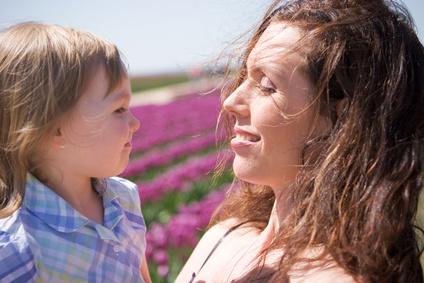Finding the right childcare arrangement for your family can be a tough task. Both family daycare and center-based daycare are popular childcare choices, but each has its pros and cons. In addition to considering your family’s priorities, needs and budget, your child’s temperament must also be a factor when choosing a childcare arrangement.
Environments
Family daycare is often called “in-home daycare,” because the childcare takes place in the caregiver’s home. Family daycares have a personal and homey feel. Since a very limited number of children are enrolled, children develop a close bond with their caregiver and others in daycare with them. Since the child-provider ratio is low in family daycares, children receive more flexible and customized care. Center-based daycare takes place in a commercial space and has a more institutionalized feel. Since there are many children enrolled in center-based daycares, and there are multiple providers, children tend not to develop as close a relationship with their caregiver. To ensure that the needs of all the children can be met in a center-based daycare, children must adapt to the center’s daily schedule of activities.
Pricing
While the cost of childcare varies significantly from state to state, family daycare is less expensive than center-based daycare. According to National Association of Child Care Resource & Referral Agencies, in 2008, the average annual fee for full-time care for an infant in Massachusetts was $15,895 in a center-based daycare and $10,324 in a family daycare. In more rural areas, like South Carolina, the average annual fee for full-time care for an infant was $5,690 in a center-based daycare and $3,582 in a family daycare.
Oversight
Center-based daycares are subject to much more regulation than family daycares. While some local governments may oversee the operations of family daycare, according to the federal Bureau of Labor Statistics, most states do not regulate family childcare providers who care for two to five children. While home daycares are usually required to obtain state health and safety licensing, many don’t. Since family daycares are smaller than center-based daycare, they aren’t as likely to get caught if they don’t have the proper licensing. While voluntary accreditation is available through the National Association for Family Child Care, only a few hundred family daycares currently have accreditation. Center-based daycares are regulated more strictly and are required to be licensed to operate. In addition, in most states, there are age and training requirements for center-based providers. Providers must also pass a criminal background screening.
Scheduling
Since family daycare providers operate out of their own home and only care for a few children, they are usually more willing to be flexible with their scheduling. They’ll usually open early and close late for a minimal fee, if a parent’s schedule demands it. Center-based daycares have strict hours of operation. If parents are late for picking up their children, it’s not uncommon for a center to charge by the minute.
Considerations
Since the family daycare provider is likely the only person caring for your children, if she or a family member is sick or if there is a family emergency, you’ll likely have to find back-up childcare. In center-based daycare, there are several providers and a substitute can often be called, should a provider need a day off. If you are concerned about your child getting sick from daycare, you may want to opt for family daycare. The more children your child is around, the greater the chances are he’ll get sick. When making your childcare choice, take into consideration which environment may best suit your child. If your child seems to do better in small group settings, family daycare may be the best option.





